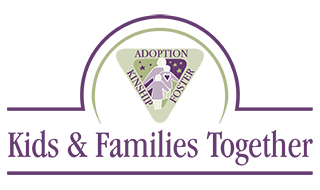

- This event has passed.
World Introvert Day
What is the history behind World Introvert Day?
Felicitas Heyne created World Introvert Day. Heyne is a German psychologist and author. She brought it to life in 2011 to bring awareness to introverts’ distinctiveness and address the discrimination and lack of appreciation they often face.
Definitions from Merriam-Webster;
- Introvert – a typically reserved or quiet person who tends to be introspective and enjoys spending time alone.
- Extravert -a typically gregarious and unreserved person who enjoys and seeks out social interaction.
Introvert “I like getting my energy from dealing with the ideas, pictures, memories, and reactions that are inside my head, in my inner world. I often prefer doing things alone or with one or two people I feel comfortable with. I take time to reflect so that I have a clear idea of what I’ll be doing when I decide to act. Ideas are almost solid things for me. Sometimes I like the idea of something better than the real thing.”
Extravert “I like getting my energy from active involvement in events and having a lot of different activities. I’m excited when I’m around people and I like to energize other people. I like moving into action and making things happen. I generally feel at home in the world. I often understand a problem better when I can talk out loud about it and hear what others have to say. “
While introversion and extraversion are inborn parts of personality, how they are defined, perceived and treated changes. When the concepts of extraversion and introversion were first introduced, introversion was commonly seen as largely negative – being aloof, shy or even narcissistic. Over time introversion has become more about comfort with quiet, thoughtfulness, affinity for deeper conversation or deeper relationships. Another major change in how we see this spectrum is the addition of ambivert. An Ambivert is someone who falls in the middle of the spectrum or has traits of each.
Cultural Ramifications
The US is often considered to be one of the most outgoing countries and Finland is considered to be one of the most introverted. However even with these cultural differences, the overall rates of introversion are similar in all countries – generally around 50% of the population. So the levels of introversion or extraversion for individuals do not seem to change much with the country’s level of introversion or extraversion. However, whether a country is culturally introverted or extraverted does impact how comfortable people will feel expressing themselves or how supported they feel in their communities.
One likely reason for seeing more people identify with introversion than in the past is that it is becoming more accepted in general, and less likely to be seen as a sign of a mental disorder. A great resource for seeing the value in introversion is Susan Cain’s book Quiet: The Power of Introverts in a World That Can’t Stop Talking. Her book is a response to how introversion has typically been perceived in the US in the past. “The problem is that even though science tells us otherwise, society has come to view positive, healthy personality traits linked to extroverts and negative, pathological traits linked to introverts. Since almost half of the U.S population are considered introverts (Cain, 2012), this view of introversion is clearly problematic as it stigmatizes those that possess introverted characteristics as ”less desirable”, “not normal” or even “pathological”, and suggest they must be changed or fixed somehow.”
Liliana Nakamura is an introvert who was raised in a multicultural setting and has worked in different countries. Attached is an article sharing her personal perspective of living and working in different settings and some things that she learned. One that we can apply in a work environment is…”Organizations could focus their efforts on building psychologically safe environments. Introverts should feel accepted and comfortable to express themselves through various means, and extroverts should give room for all opinions. When designing performance management systems, collaboration tools, and reward strategies, companies need to consider all personality types.”
Check out her article “Introverts, Extroverts, and Cultural Context: A Framework for Life and Work”
Resources/Action items…
- World Introvert Day 2023 Facts: World Introvert Day 2023: When, why and interesting facts – The Economic Times (indiatimes.com)
- Introvert Definition & Meaning – Merriam-Webster
- Extravert Definition & Meaning – Merriam-Webster
- The Myers & Briggs Foundation – Extraversion or Introversion (myersbriggs.org)
- Susan Cain: ‘Society has a cultural bias towards extroverts’ | Psychology | The Guardian
- Introverts, Extroverts, and Cultural Context: A Framework for Life and Work | by Liliana Nakamura | Curated Careers | Medium
Check out the Landgeist website for maps with percentages.
- Extraversion and Introversion in Asia – Landgeist
- Extraversion and Introversion in Europe – Landgeist
- Extraversion and Introversion in the US – Landgeist
- Introverts, Extroverts, and Cultural Context: A Framework for Life and Work | by Liliana Nakamura | Curated Careers | Medium
- Amidst a culture of noise silence is still golden : a sociocultural historical analysis of the pathologization of introversion (smith.edu)
 Kids and Families Together
Kids and Families Together